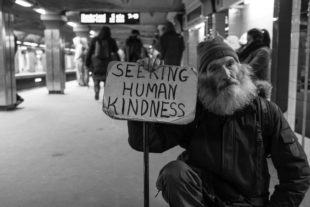20 Ways to Hope for the Verbal Abuser
Christian Counselor Spokane
The Department of Justice (2017) defines verbal or emotional abuse as: “undermining an individual’s sense of self-worth and/or self-esteem. This may include, but is not limited to constant criticism, diminishing one’s abilities, name-calling, or damaging one’s relationship with his or her children.”
Evans (1996) mentions the following characteristics of abusers in The Verbally Abusive Relationship: argumentative, arrogant, aggressive, bitter, commanding, competitive, complainer, conceited, controlling, critical, cruel, demanding, dismissive, easily frustrated, explosive, inattentive, insensitive, irritable, insecure, intense, intolerant, irresponsible, jealous, judgmental, lack of empathy, hostile, manipulative, mistrusting, negative, obsessed, paranoid, possessive, punishing, rejecting, resentful, resistant, ruthless, secretive, selfish, self-righteous, shut-down, suspicious, uncommunicative, unexpressive, unforgiving, unpredictable, and vicious.
Do any of the above adjectives define you?
You Are Not a “Bad” Person
If you are verbally abusive, you most likely experienced hostile living conditions as a child. You probably did not have anyone to talk with or anyone to validate, reassure, nurture, empathize, or show compassion towards you and your emotions. Not being provided these important skills when you were young and most vulnerable, you learned that it was not okay to feel, act, or communicate your emotions.
 This left you feeling angry, defensive, dependent, a failure, guilty, helpless, inadequate, inferior, misunderstood, needy, pained, powerless, rejected, shame, unheard, and unworthy. To deal with these emotions, you have found that isolation and living in fear of how others perceive you have consumed you.
This left you feeling angry, defensive, dependent, a failure, guilty, helpless, inadequate, inferior, misunderstood, needy, pained, powerless, rejected, shame, unheard, and unworthy. To deal with these emotions, you have found that isolation and living in fear of how others perceive you have consumed you.
To gain some control and alleviate your anxieties, you attempt to dominate, withhold love, and deny basic personal rights to those you do not see as equal. Not wanting to look within, you have found that detachment and living in denial about your abusive behavior helps.
Detaching also helps you dismiss the inner awareness that you are making people feel as vulnerable and hurt as you feel inside. The longer you go into this condition the less remorseful for your actions you become. While you might feel truly be sorry for how you are behaving, you lack the skills and tools to apologize, correct your behavior, and act differently in the future.
20 Ways to Hope
1. Sonkin & Durphy (1994) suggests the first step to stop any form of assault is to take a time-out. A time-out should be followed whenever you feel your anger rising, your body becoming tense, or you begin to feel frustrated or out of control:
- Tell your partner, “I’m beginning to feel angry and I need to take a Time-Out.”
- Leave your home for one hour (no longer and no shorter), during which you cannot use any substance. Do not drive (unless it is absolutely necessary). Do something physical like going for a walk or run. If you begin to think about the situation that made you angry, just say to yourself: “I’m beginning to feel angry and I need to take a Time-Out.” In this way, you will be taking a mental Time-Out as well as a physical Time-Out (pp.4-5).
- When you return in one hour, check in and tell your partner that you have come back from your Time-Out and ask them if they would like to talk with you about what it was that made you feel angry. If one of you doesn’t want to talk about the situation, respect that person’s need to not discuss it.
In either case, if you find yourself feeling angry again, take another Time-Out or write it down in a notebook and bring it up in therapy where both will be heard and understood.
- Practice taking time-outs when not angered.
While time-outs are essential in making sure you don’t continue to cause harm to your partner, Engel (2002) states that it is not enough. She posits that if you find yourself being emotionally or verbally abusive towards your partner by being arrogant, dismissive, making insensitive comments, being inattentive, being brash, and/or feeling the need to always be right at the expense of others, there are other things you can do.
2. Admit you have a problem to yourself, a trusted friend, your partner, and a therapist.
3. Face the truth about your childhood. While this is hard work, it is essential. I suggest you seek counseling. You should not do this alone. You are not alone in feeling this way.
 4. Begin to let down your defenses.
4. Begin to let down your defenses.
It will take a lot of courage and strength to tear down your strongly built defense system and get to the root of your problems. But doing so will help you move forward from the abuses and neglect of your childhood.
5. Catch yourself when you are criticizing your partner. Ask your partner to point out when you are criticizing, belittling, or making fun of them. Thank them for reminding you. Consider why you feel the need to push them away and maintain control over them.
6. Begin listening, asking questions, and taking a genuine interest in your partner. Recognize if you are listening to appease, avoid, criticize, defend, dismiss, debate, deny, react, retaliate, or threaten and then stop yourself. Instead, listen to obtain information, to understand, for enjoyment, and to learn. Look at your partner; put aside distracting thoughts, things, and environmental factors; and beware of your body language.
7. Apologize to your partner for mistreating them in in the past and show them that you are committed to making changes.
8. Begin to appreciate how your partner enriches your life. Begin a gratitude journal.
9. Appreciate nature. Take walks (pp. 194-211).
Porterfield (1989) gives additional advice:
10. It’s okay to not be perfect. You will never be perfect no matter how hard you try. The harder you try, the more mistakes you will make (p.32).
 11. Accept your demons. When you refuse to admit to them, you end up giving them more power and they end up controlling you. When you learn to unconditionally and nonjudgmentally accept yourself wholeheartedly (warts and all), you will lead a happier, healthier life (p.62).
11. Accept your demons. When you refuse to admit to them, you end up giving them more power and they end up controlling you. When you learn to unconditionally and nonjudgmentally accept yourself wholeheartedly (warts and all), you will lead a happier, healthier life (p.62).
12. Accept that anger is a useful emotion. Anger allows us to set boundaries for what we allow others to do to us and how we respond. It motivates us to make improvements in our lives. Anger becomes a problem when we attempt to get even and when we become abusive.
13. Accept that fear is also beneficial. It helps us determine whether we should run, hide, fight, or freeze when in danger. Fear is only a problem when it consumes our lives. If you experienced fear in your childhood, you could remain in constant fear as an adult, until you work through it.
Symptoms of fear include hypervigilance, rigidity, being easily startled, and having difficulty concentrating. When people avoid dealing with their fears, they can end up with headaches, ulcers, high blood pressure, muscle tension and other physical ailments (pp.65-67).
14. Let go of any past guilt and shame. Guilt and shame are crippling because people tend to reject themselves and feel like they are a waste of space because of all of the things they have done wrong. To avoid feeling guilt and shame, people self-medicate with substances (pp.69-72).
15. Stop self-medicating. The Department of Justice (2017) reports that approximately 61% of abusers also have problems with alcohol or drug abuse. Utilizing substances to relax; fit in; relate better with others; avoid situations, people, arguments, and emotions; avoid dealing with your past or present situations; or to get drunk, high, and/or to get to sleep, is stopping you from healing, feeling, and embracing life.
Get help with this if you find you can’t do it on your own. It takes a lot of strength and courage to seek help but I’m sure you are tired living the way you are. I believe in you. Keep reading and trying these steps. You got this!
16. Stop self-sabotaging. Often, we go back to our old ways of doing and thinking out of fear of change. Setting achievable goals is an important step toward setting ourselves up for success. Sometimes we unconsciously set unrealistic goals because deep down, we are afraid of change.
Because we aren’t able to achieve these unrealistic goals, we become frustrated, blame ourselves and others, and then quit (pp.114-116). Relapse into old behavior is not part of the process of change. Get back on track. You can do it!
17. Focus on the positive changes. Positive changes in our lives are scary, even though they are good. Newness is uncomfortable. Remember: It’s easy to overlook the small, gradual changes we are making. Being able to notice and celebrate the slightest, positive changes in our lives motivates us to continue to make the necessary modifications (p.116).
18. Focus on what you can control right now. Learning to be in the now helps us stop looking at the future, where we have no control. You can control the right now and how you react and perceive various situations (pp. 114-116).
19. Take time each day to mentally rehearse your goal of living a fulfilling, well-balanced life (p.117).
 20. Make amends with those you have hurt. It is important for you to move forward and make positive changes in your life, but you must first ask for forgiveness from those you have hurt.
20. Make amends with those you have hurt. It is important for you to move forward and make positive changes in your life, but you must first ask for forgiveness from those you have hurt.
These people include you as a child, adolescent, and as an adult; your partners in current and previous relationships; your children; your friends; your extended family; and your co-workers (p.119-132).
To make amends:
- Completely accept and forgive yourself.
- Completely accept and forgive the other person.
- Fully own responsibility for the harm you have done.
- Be willing to correct the wrong you did.
- Resolve not to repeat it (p.140).
Here is an example of how to ask for forgiveness as suggested by Porterfield (1989):
“I feel regret about the time I ________________ and I want to apologize to you for that. If there’s any way I can correct the situation between us, please let me know (p.140).”
Christian Counseling for the Verbal Abuser
As I mentioned throughout this article, this is hard work. You will shed a lot of tears and face your many demons. Knowing you don’t have to do this alone is a big relief, as you will need as much support as possible. Therefore, I suggest you open yourself up to a Higher Power.
God unconditionally accepts and loves you. He is your guide to self-forgiveness. He will help you take off your many masks and will heal you. Allow Him to comfort you right now.
Pray with me: Dear God, I pray that you open the heart of the person reading this article. I know you know their heart. Please heal them from their hurts, anxieties, and fears. Please lead them towards a better way of life and provide comfort during their journey. Amen.
Reach Out for Help
In this article, I have asked you to change who you are and who you have been for all these years. Change won’t happen overnight. It will take a lot of perseverance and hard work. This work will make you dig deep. It will make you deal with emotions you buried a long time ago.
Let’s work together to build a stronger, loving, empathetic you. I offer compassionate, non-judgmental, strength-based services. Let me help you experience a healthy relationship for the first time, where you and your partner share the equality, partnership, mutuality, goodwill, intimacy, and where you validate one another.
ReferencesDepartment of Justice. (2017). Retrieved from https://www.justice.gov/ovw/domestic-violence
Engel, B. (2002). The Emotionally Abusive Relationship. Hoken, NJ: John Wiley & Sons.
Evans, P. (1996). The Verbally Abusive Relationship. Holbrook, MA: Adams Media.
Porterfield, K. (1989). Violent Voices: 12 Steps to Freedom from Emotional and Verbal Abuse. Deerfield Beach, FL: Health Communications, Inc.
Sonkin, D. & Durphy, M. (1994). Learning to Live Without Violence: A Handbook for Men. Volcano, CA: Volcano Press.
Photos
“Free”, Courtesy of Zac Durant, Unsplash.com; CC0 License; “Trapped”, Courtesy of Shttefan, Unsplash.com; CC0 License; “Stained”, Courtesy of Jesse Orrico, Unsplash.com; CC0 License; “Seeking Human Kindness”, Courtesy of Matt Collamer, Unsplash.com; CC0 License;





